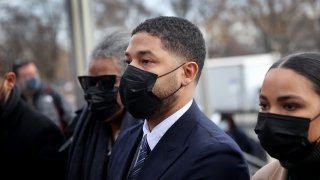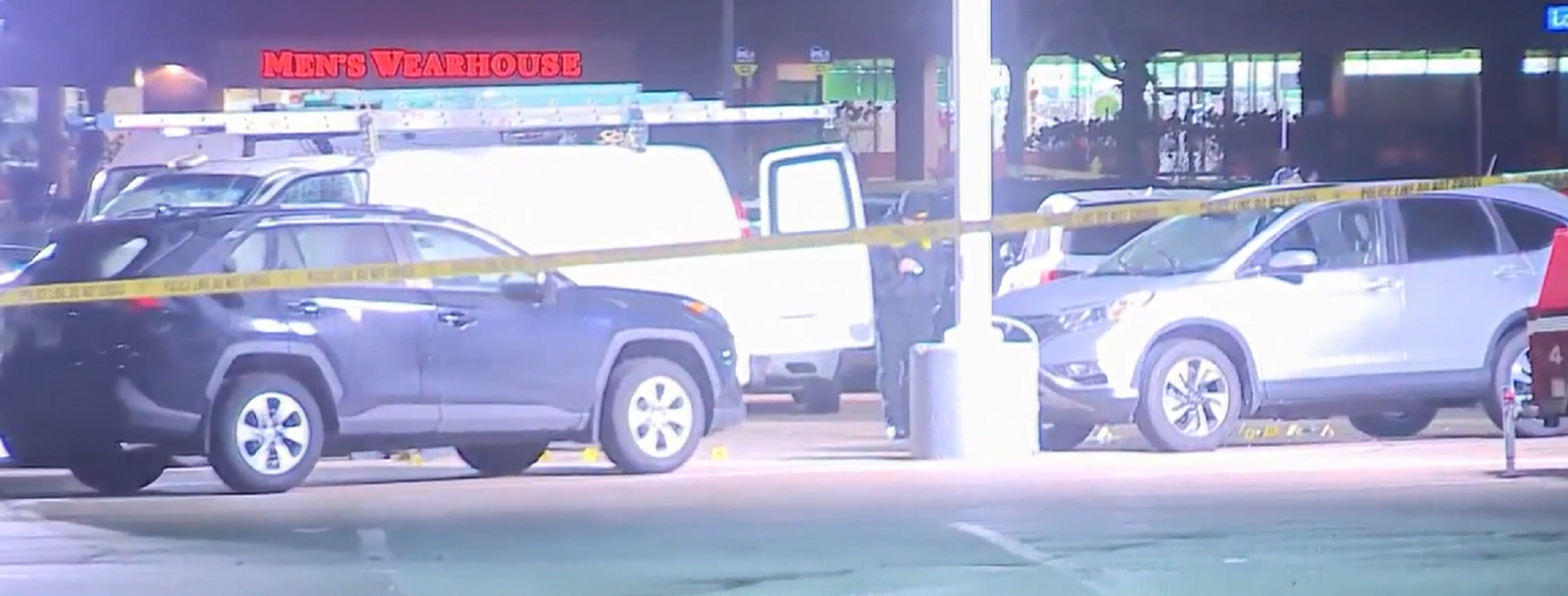
Jussie Smollett, who is accused of lying to police when he reported he was the victim of racist and homophobic attack in downtown Chicago, appeared troubled when he was told that a surveillance camera did not record the alleged assault, a police detective testified Wednesday.
Chicago police detective Kimberly Murray said she interviewed the former “Empire” actor the morning of the January 2019 attack and that he told her he had been assaulted by two men — one white and wearing a ski mask, the other he couldn't see — as he was returning home after buying a sandwich.
Murray also said Smollett told her he had received a threatening phone call days earlier, but he refused to hand over his cellphone, which the detective said could help police piece together a timeline of what happened, and he wouldn't consent to giving medical records or a DNA swab.
She also said Smollett was “upset” when she told him a surveillance camera in the area didn't capture the alleged attack because it was pointed away from the scene. Murray said she explained to the actor that the cover on the pod camera makes it impossible to know which way it is pointing.
A Chicago police officer testified Tuesday that investigators tracked down two possible suspects in the assault — brothers who also worked on the “Empire” set in Chicago — using surveillance video and taxi and rideshare records. When taken into custody, they detailed for police how Smollett orchestrated the fake attack, including buying supplies and doing a “dry run” with them.
A detective who interviewed Smollett two weeks after the alleged assault — and after the brothers, who are Black, had been taken into custody — said Smollett started to change his story. Smollett told Graves his attacker had “pale skin,” when he previously said he was white. When Graves confronted Smollett about the discrepancy, Smollett said the attacker “acted like he was white by what he said.”
Graves also told Smollett the two brothers, Abimbola and Olabingo Osundairo, were in custody for the hate crime.
Local
“He said ‘It can’t be them, they’re black as sin,’” Graves recounted, saying he took that to mean the brothers' skin is very dark.
Graves testified that during the Feb. 14 interview, Smollett said he would sign a complaint against the brothers, though his attorney stopped him from doing so. About 90 minutes later, Smollett sent one of the brothers a text message, Graves said.
Feeling out of the loop? We'll catch you up on the Chicago news you need to know. Sign up for the weekly Chicago Catch-Up newsletter.
“Brother... I love you. I stand with you," the message read. "I know 1000% you and your brother did nothing wrong and never would. I am making a statement so everyone else knows. They will not get away with this. Please hit me when they let you go. I’m behind you fully.”
Graves said he concluded Smollett had lied to him.
Defense attorney Nenye Uche has said the brothers attacked Smollett, who is Black and gay, “because of who he is” and suggested Tuesday that the brothers were homophobic.
Smollett is charged with six counts of felony disorderly conduct for making what prosecutors say was a false police report — one count for each time he gave a report, to three different officers. The class 4 felony carries a prison sentence of up to three years, but experts have said if Smollett is convicted he likely would be placed on probation and ordered to perform community service.
After their arrest, the Osundairo brothers told police Smollett asked them to stage the attack because he was unhappy about how the TV studio handled hate mail he had received, a lead detective on the case, Michael Theis, testified Tuesday. He said investigators corroborated their version of events using GPS, cellphone records and video evidence and found no instance where they concluded the men were lying.
Jurors were shown surveillance video Tuesday of the brothers buying supplies, including a red hat they told police Smollett wanted them to wear to resemble supporters of then-President Donald Trump, and a piece of clothesline police said was later fashioned into the noose. Jurors also saw a still image from a video that Theis said showed Smollett returning home the night of the alleged attack, with the clothesline draped around his shoulders. The clothesline was wrapped around his neck when officers arrived, Theis said, leading detectives to believe Smollett may have retied it.
Uche has portrayed the Osundairo brothers as unreliable, and said when police searched their home they found heroin and guns. The brothers will testify at trial, but it’s unknown if Smollett will.
Uche also sought to discredit the police investigation, suggesting detectives ignored possible leads. And he said a $3,500 check the actor paid the brothers was for personal training so he could prepare for an upcoming music video, not for carrying out the hoax, as prosecutors allege. Theis said the memo on the check said it was for “nutrition” and “training.”



